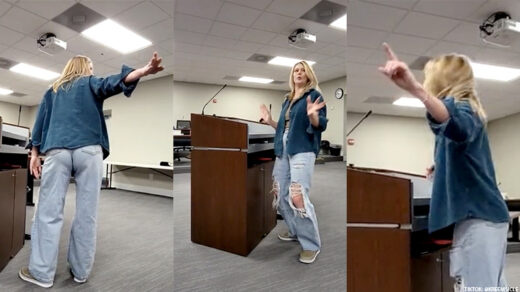In Gay We Trust: Devising a Plan for Mourning in America
My family and I have been sheltering in place since March 13, anxiously awaiting New York Gov. Andrew Cuomo’s announcement of each reopening phase so we can all get back to some semblance of normal.
Phase 1: retail pickup or drop-off, construction, manufacturing, and wholesale trade. Check. Phase 2: commercial offices, retail businesses, and food services opening or expanding. Check. Phase 3: personal care services such as tattoo parlors and spas. Check. Phase 4: outdoor arts and entertainment, media production, pro sports, and higher education. Check.
But there is a phase nobody is talking about. It will affect all of us, and we need a plan for it: a national plan for mourning.
How and when will we mourn the 150,000 deaths in the United States due to COVID-19? What is the appropriate length of time to keep our nation’s flags at half-staff for all the people who have perished?
We will not be able to read the names of the fallen each year as we do on 9/11. Where will we fit their monument? And when we do, will it be the proper expression of grief, the deserving celebration of lives? Or will it just be a pillar to our government’s neglectful and inept pandemic response?
It’s mourning in America now, and it’s time we convene therapists, theologians, educators, and healers to come up with our bereavement plan.
I have an intimate relationship with grief. I had 20 friends die of AIDS before I was 30 years old, my sister died of cancer, and I had a baby die at birth. I know deeply the pain of loss, and I have profound, lasting damage from ignoring its power in order to bow to the persistent societal pressure to find closure and simply move on.
The too many glasses of wine just to help me fall asleep so the day would finally be over, the burrowing into dangerous behavior because my all-consuming sadness fogged my judgment, and really, what else could I have to lose. All but giving up because hope was stubbornly elusive. It took me years of therapy to process these losses and find the requisite optimism to live fully.
One of the challenges of grieving is that no one wants to talk to you about it while you are going through it. I have lived in silent torment for two decades now grieving my baby. Nobody wants to hear you talk about a dead baby.
This COVID-19 loss is ours collectively as a nation, and to many it is also deeply personal. We must mourn as a nation and also be there for each other in what Sarah Hurwitz in her book Here All Along calls “the ministry of presence.”
Listen when someone wants to reminisce about their deceased; sit with them in sadness. During this pandemic we all have been confronted with bitter disappointments and shattered expectations. Loss of jobs, school disruptions, cancellations of life cycle events like graduations and weddings. Our streets look war-torn; favorite local businesses shut down permanently, unable to survive. These losses require mourning too.
Sadness isn’t reserved solely for the dearly departed. Grief is for everything we lose.
Our country is already boiling over with rage, and now we must steel ourselves for the stages of grief — denial, anger, bargaining, depression, and acceptance. Its treacherous reality is that it is not a linear, logical path. In order to grieve collectively, we’ll need a source of empathy that we simply do not have right now. We are all in our bunkers, scared and angry.
When we emerge, it will be difficult to pause to grieve, given that we all need to get back on our feet. As a country, we can’t force ourselves to move on too fast as if nothing happened, or act like getting back to normal is some perverted idea of closure. We have spent so much time trying to stay safe, keeping a distance, that it won’t feel natural, at first, to go toward each other. We will need to strip away our fear of one another if we are going to help each other.
Bereavement counselors, like contact tracers, must be spread out all over the country in places to help all of us process and heal. If we don’t sufficiently deal with our sorrow, our national anthem will be a dirge.
Richie Jackson is the author of Gay Like Me: A Father Writes to His Son , published by HarperCollins. He is an award-winning Broadway, television, and film producer who most recently produced the Tony Award-nominated Harvey Fierstein’s Torch Song on Broadway. He executive produced Showtime’s Nurse Jackie for seven seasons and co-executive produced the film Shortbus, written and directed by John Cameron Mitchell. He and his husband, Jordan Roth, live in New York City with their two sons.
Original Article on The Advocate
Author: Richie Jackson




